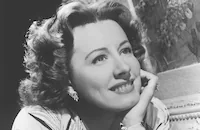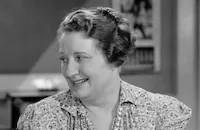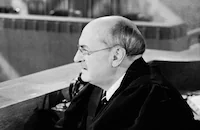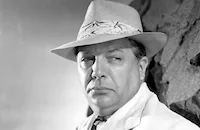Five Cary Grant DVD Debuts from Warner Home Video
Warner Home Video (WHV) is proud to celebrate Cary Grant's centennial with the Signature Collection DVD debut of five films from Hollywood's acclaimed screen legend whose gallantry and courtly charm spanned an illustrious career of 76 films. This collection includes
Mr. Blandings Builds His Dream House,
The Bachelor and The Bobby-Soxer,
My Favorite Wife,
Destination Tokyo and
Night and Day. Each of the DVDs includes the extra bonus features
.
"Grant was indeed Hollywood's quintessential leading man," says George Feltenstein, WHH's Senior Vice President Classic Catalog. "Equally comfortable at comedy or drama, his popularity is unwavering and is still the standard by which romantic, sophisticated leading men are judged."
Once told by an interviewer "Everybody would like to be Cary Grant," Grant is said to have replied: "So would I." Born Archibald Leach in Bristol, England, on January 18, 1904, Grant left school at 14 to join the Bob Pender Troupe of knockabout comedians touring the English provinces. In 1920, Grant first came to America when the troupe appeared on Broadway in
Good Times.
In 1933, Mae West picked Grant for
She Done Him Wrong and
I'm No Angel and his movie career was off and running. In the late '30s, Grant became one of the first stars to work as a "free agent," making films for multiple studios including MGM, Columbia and RKO. In 1936, he first teamed with Katharine Hepburn and director George Cukor for
Sylvia Scarlett, the initial film to fully demonstrate Grant's inspired comic flair. Among the films that followed were
The Awful Truth, Bringing Up Baby, His Girl Friday, Topper, Philadelphia Story, Suspicion, Arsenic and Old Lace and
None but the Lonely Heart, for which he won an Oscar® nomination. In 1970, the actor was given a special Academy Award® for career achievement.
Notably, Grant appeared in four of Alfred Hitchcock's best films, including the romantic thrillers
North by Northwes with Eva Marie Saint;
Notorious opposite Ingrid Bergman;
Suspicion opposite Joan Fontaine and
To Catch A Thief with Grace Kelly. Seemingly growing more handsome and charming as he got older, Grant retained his star status into the 1960s, appearing in such box-office hits as
Operation Petticoat and
Charade. He retired from the screen in 1966, but spent the next twenty years in the public eye, as a board member for companies such as Faberge, MGM and Hollywood Park. Despite constant offers, Grant refused to return to the screen, although he did consent to a series of retrospective Q&A evenings across America with his beloved fans. He enjoyed the experiences immeasurably, as did the audiences. It was in Davenport, Iowa while rehearsing for one of these "in-person" events that Cary Grant suffered a sudden stroke and died on November 29, 1986.
The Films in Cary Grant: The Signature Collection
Mr. Blandings Builds His Dream House - Goodbye city life; hello Connecticut, with plenty of laugh stops along the way. This movie classic - named by AFI as one of America's 100 Funniest Movies - about the frustrations and joys of building and owning a home features Grant as a New York ad exec who's taken on the task of building a house from the ground up. Will he lose everything, including his sanity, or become a happy suburban homeowner? Myrna Loy, as his extremely patient wife and Melvyn Douglas join in the fun.
Mr. Blandings Builds His Dream House will have the following extra content:
· Two Radio Productions:
- October 10, 1949 LUX Radio Theatre Broadcast starring Grant and Irene Dunne
- June 9, 1950 Screen Directors Playhouse Broadcast starring Grant and (his then-wife) Betsy Drake
· "The House of Tomorrow" Classic M-G-M Tex Avery Cartoon
· Cary Grant Trailer Gallery
· Theatrical Trailer
The Bachelor and The Bobby-Soxer - 1947 Academy Award® winner for Best Original Screenplay (by Sidney Sheldon), the film stars Cary Grant with Myrna Loy and a teen-aged Shirley Temple. In this very entertaining romantic comedy, Grant plays Richard Nugent, a bachelor minding his own business who finds a love-sick girl (Shirley Temple) asleep on his couch. The older sister of the teen is a Judge (Myrna Loy), and she "sentences" Nugent to go out with the bobby-soxer until she is no longer infatuated.
The extra features included on the DVD are:
· June 13, 1949 LUX Radio theatre Radio Production starring Grant and Temple
· "Little Tinker" Classic Tex Avery M-G-M cartoon
· Cary Grant Trailer Gallery
· Theatrical Trailer
My Favorite Wife - Grant skillfully plays the romantic hunk and the comedic buffoon in this movie about marital mix-ups. Nick Arden (Grant) is on his way to the honeymoon suite with his new bride (Gail Patrick) when he runs into the wife (Irene Dunne) who was lost at sea and presumed dead seven years ago. The marriage knots have to be untied as the real Mrs. Arden steps up to claim her husband in this quirky romance filled with high jinks and big laughs.
My Favorite Wife will contain the following bonus content:
· Vintage M-G-M Robert Benchley short subject "Home Movies"
· December 7, 1949 Screen Director¿s Playhouse Radio Production starring Grant and Dunne
· Theatrical Trailer
Destination Tokyo - Grant is a military hero in this action-filled war drama. As Captain Cassidy, Grant pilots the U.S. submarine Copperfin through the dangerous waters of the enemy's front yard. Delmer Daves makes his directorial debut with this film that critics say remains "a classic war drama." This is the only military drama Grant made during World War II.
Destination Tokyo will contain these bonus features:
· Warner Bros. WWII short: "Gem of the Ocean"
· Cary Grant Trailer Gallery
· Theatrical Trailer
Night And Day - Appearing in his first Technicolor motion picture, Grant portrays Cole Porter, the legendary, sophisticated songwriter whose life was marked by triumph and tragedy. He's joined by a superb cast including Alexis Smith, Jane Wyman, Eve Arden and Monty Woolley as himself. The film contains more than 20 of Porter's songs which have been enjoyed by many generations over the years. One of the film's most famous moments is Mary Martin re-creating her Broadway performance of "My Heart Belongs to Daddy," the show-stopper that made her an overnight star. Even Cary gets into the act singing "You're the Top" with `40s chanteuse Ginny Simms. Interestingly, Hollywood is once again bringing Porter's life to the screen later this year, with Kevin Kline portraying the composer in Irwin Winkler's film "DeLovely."
The extra content in Night And Day will be:
· Vintage Warner Bros. Shorts: Desi Arnaz and His Orchestra and "Musical Movieland"
· Bugs Bunny and Elmer Fudd in "The Big Snooze" a classic Looney Tunes cartoon
· Cole Porter Trailer Gallery
Each DVD will be presented in a format preserving the aspect ratio of its original theatrical exhibition and will include subtitles in English, French and Spanish. All except
The Bachelor and The Bobby-Soxer are in Dual-Layer format.
To order
Cary Grant: The Signature Collection, click
here. Explore more Cary Grant titles
here.

































